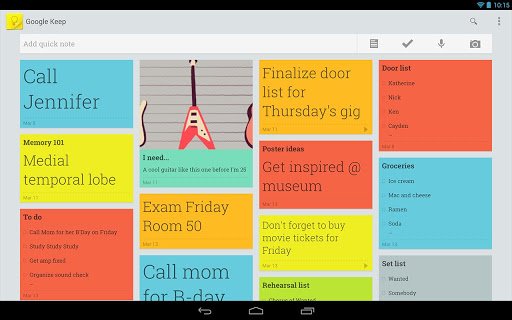Looking for JC or O Level tuition?
Call or  Ingel at 96726733 now to avoid disappointment!
Ingel at 96726733 now to avoid disappointment!
Check out these step-by-step worked solutions videos for A Level JC H2 Physics, Chemistry and Mathematics for top schools prelim papers like RI, Hwa Chong, VJC, NJC, TJC, Eunoia JC etc.
How would you like to see the BEST studying tips I’ve used to score well, get a* in O Levels and get distinctions in A Levels?
Well consider yourself very lucky …
… because today I’m going to share with you my best ways and preparation tips to prepare for my O and A levels and never revealed before (except to my students).
You’re NOT going to find anything that is repeated in various books (think Mind Maps) or be organized (duh).
The best part:
Everything’s free.
1. Find Out What You are Supposed to Know
Check out the learning objectives here) (and ignore the rest!).
This should be used in conjunction with the Legendary Blank Piece of Paper below.
If you don’t know where is your destination, you’ll never be able to reach there.
Similarly, don’t fret if you can’t do some school prelim papers.
Double check against the learning objectives to see if you’re supposed to know how to answer them.
2. Use Ingel’s Legendary Blank Piece of Paper
I didn’t coin this; my students did.
Here’s the ultimate tip my students have been using to score their distinctions:
Right after you’ve finished studying a topic,
take a blank piece of A4 paper, write ALL you know about that topic.
This includes:
Definitions, derivations, diagrams etc.
The 1st time you do this, you might only be able to get an accuracy of 30
This method will immediately allow you to know your familiarity with the topic, and you should refer to your notes for re-cap.
Repeat the process until you get around 80
Standard A4 printing paper works better than foolscap pads with all the lines crawling over them (and much cheaper too!).
Formatting doesn’t matter – just scribble on any empty regions on the paper.
Of course, it is a painful and tedious process to regurgitate and reproduce everything.
Students also do not like being “enlightened” that they still have so many things they do not know after revising for that topic.
But why this works:
During examinations, you totally have no textbooks nor notes to refer to.
This method simulates actual examination conditions and forces you to rack your brains.
3. Milk Ten Years Series
Don’t just use Ten Year Series (TYS).
Milk them to the fullest and I’ve shared the how-to here.
Do your TYS faithfully and you’ll know what to expect for your O Levels or A Levels.
4. Use Tons of Memory Techniques
“A” students know this:
Memory techniques are key to getting their distinctions.
Common tricks being used are mnemonics, memory palace, chunking, creating outrageous visual connections, writing them down and sharing what you’ve learnt.
To keep this post concise, I’ll show you exactly how to deploy each and every technique mentioned in a separate post.
With examples, of course.
5. Snack and Tidbits
My rule:
If it helps your butt stays fixated on the chair for the entire day, go for it.
Get your sugar rush to keep your brain well-nourished.
6. Listen to Music
Why not?
(I can already imagine students cheering while gaining disapproving stares from parents)
Contrary to the view of most parents, I advocate listening to music while you’re revising your notes.
This advice is in accordance with my personal rule.
Studies have shown listening to upbeat music can greatly motivate one.
No wonder Olympic swimmers are donning these huge headphones before their competition:

A small tip I’ve used:
whenever the last song on the album has finished playing, I’ll give myself a little pat on the back and go for a short rest.
YouTube and Spotify contain some awesome song channels.
7. Prepare Last Minute Cheat Sheets (LMCS)
Have you experienced this:
No matter how hard you’ve tried, there’s certain stuff that you find it hard to remember.
Think formulas and definitions.
Therefore, you should jot them down in what I call a Last Minute Cheat Sheets (LMCS).
Your LMCS should cover an A4-sized paper, max.
On the day of your examination, revisit your LMCS repeatedly until you’re told to pack your bags away.
Then, when you’re given the permission by the invigilator to start writing,
Immediately regurgitate the important notes on your question paper.
After all, these are the ones your memory have trouble recalling after a short while.
The next time you like a beautiful descriptive phrase,
record it down in your LMCS stash for future use.
Rinse and repeat for every subject.
Remember, you should keep it simple, stupid (KISS).
Simple, isn’t it?
8. Prepare Clarification Sheets
Similar to the Last Minute Cheat Sheet, I always have a clarification sheet (CS) for every subject.
The CS is a collection of questions or doubts you’ve come across during your revision.
Choose to ignore clarifying your doubts and you’ll risk slapping yourself when the same question appears in the examinations.
With modern technology, this CS could be an electronic one.
Personally, I use Google Keep and I find their colour-coding function useful to label different subjects.
This way, you can consult your teachers, lecturers or me anytime when you bang into them!

9. (Don’t) Always Respect the Question
You might have heard your school teachers asking you to always respect the question.
That is, to faithfully answer the question and not criticize nor “question” the question.
Just because you’ve learnt differentiation doesn’t mean you’re expected to know how to differentiate every single function.
I’ve seen so many cases where the questions have been set out of context, and unnecessarily give students a false sense of insecurity.
10. Study Outside, if Needed
If you can study more effectively outside than at home, by all means, head out!
Some popular studying venues include:
-
- Libraries
- Community Centers
- Starbucks
- Airport
- Schools
- Rental Classrooms (up and coming!) etc.
Just be cautious with your belongings lest your notes got lost before your exams (gasp!)
Go with a friend or your study group (see next tip).
11. Form Study Groups
No right or wrong.
Just make sure your clique is one that discusses studying strategies and NOT DOTA strategies.
I personally find studying groups useful in motivating one another to study.
What’s more, you have a collective group of study mates to instantly clarify any doubts.
You also may not realize you’ve got the same doubts until one of your friends raise it.
Teaching your peers also helps to reinforce your own concepts.
12. Maintain Good Sleeping Practices
Know this:
It’s extremely important to have ample amount of sleep.
Skipping sleep hours in exchange for more time to study is extremely counterproductive.
The reason?
Your brain cells have been burning for an entire day’s worth of study.
By nightfall, they are ready to rest and prepare for the war next day.

Instead:
If you decide to shortchange them by driving them to work overtime (for that extra hour of studying),
when you wake up the next day, your brain cells will collectively go on strike and demand you to head to bed immediately to make up for the shortfall.
You spend your entire day feeling very grouchy,
and your studying efficiency drops drastically.
The sharp drop in efficiency more than offset the extra hour you’ve gained the previous day.
Not worth it.
A good sleep, a healthy mind.
Extra tip:
The night before your examinations, cater more time to sleep because you will likely twist and turn on your bed due to the i) anxiety of the paper tomorrow and ii) anxiety for being unable to
sleep.
So, sleep in earlier.
13. Sleep for Three Hours Chunks
This is crazy:
Do you sometimes feel more tired sleeping for 10 hours compared to 6 hours?
Now, why is this so?
Turns out that our sleep cycle spans for around 3 hours with the deep sleep (REM) occurring in the middle of the cycle, sandwiched with light sleep (non-REM ).
REM sleep or rapid-eye-movements have been associated with dreams.
Anytime you’re woken up involuntarily by the alarm clock (or your mum!) during REM stage, you’ll feel extremely lethargic and unhappy.
Waking up during non-REM stages of sleep, that is – after every 3 hours of sleep, is fine.
So the next time you have rest period of 4 hours,
it might be wiser for you to set your alarm clock to wake you up 3 hours later instead.
However,
The exact duration differs slightly for individuals.
Conduct little experiments to find out which sleep duration works best for you.
Extra tip:
Swiping your phone before sleep disrupts your sleep cycles, making them go haywire.
Put them away before you sleep.
14. Stay Safe
Stay safe (duh) and avoid high-risk activities (e.g. sports) where you might incur unneeded injuries or hospitalization stays.
If you need to relax, go for a light walk around your neighbourhood park.
Note: I’ve decided to include this somewhat “common-sense” tip after one of my students got injured on his e-scooter and had to retake his examinations.
Not worth it.
Now It’s Your Turn
Now it’s time to put all these strategies into practices.
From time to time, I’ll be updating this list so that it’ll always stay fresh and relevant!


